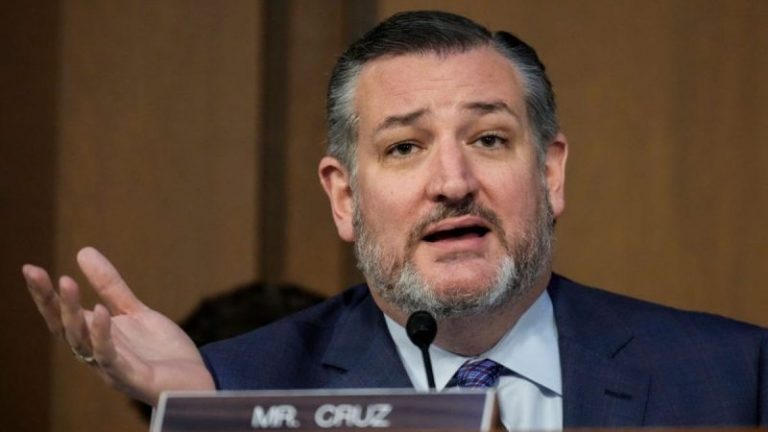FIRST ON FOX: President Biden’s multibillion-dollar broadband internet investment meant for rural areas is primarily favoring affluent blue cities and states — even encompassing areas with million-dollar residences and beachfront properties — according to a new report from Sen. Ted Cruz, R.-Tx.
The report, exclusively obtained by Fox News Digital, found that the earmarked $42.45 billion in Broadband Equity, Access, and Deployment (BEAD) funding was allocated ‘despite repeated requests from lawmakers and communities across the country’ to scrutinize how the Biden administration’s telecommunications branch collects data to determine its funding decisions.
Biden, the leading 2024 Democratic candidate, implemented the program in June as part of his ‘Bidenomics’ campaign to promote his economic policies for the 2024 election.
Every state, along with Washington, D.C., and Puerto Rico, received a base amount of $100 million, while the remaining territories were granted at least $25 million each. Texas and California, the two most densely populated states in the country, lead the funding rankings with $3.3 billion and $1.9 billion, respectively.
KAMALA HARRIS SLIP-UP REVEALS HOW BIDENOMICS HURTING AMERICAN FAMILIES
However, the distribution has gone to states with fewer locations lacking service, and the allocation raises eyebrows when considering some peculiar instances of how the funds were distributed.
In Washington D.C., out of the 184 locations lacking broadband internet, 58 of them are clustered within the Smithsonian National Zoo, which includes popular spots like the Butterfly Garden, Lion-Tiger Hill, and the Otter Pond, the report found.
Another instance of odd distribution was in Delaware, when the state received nearly $108 million from the Biden administration in June to address 2,166 unserved locations in the state.
Among those unserved locations is the Biden Environmental Training Center, a state-operated facility for conferences, training, and retreats located just 11 miles north of Rehoboth Beach.
Washington, D.C., and Delaware, both characterized by small size and high population density, were allotted over $547,000 and $52,000 respectively for each location without broadband access. The national median allocation for areas without connectivity averages $5,600 per location.
‘Providing Washington, D.C., which appears to have almost no unserved locations, with such a disproportionately large amount of funding diverts BEAD funds from truly unserved areas of the country,’ said Cruz, ranking chair of the Senate commerce committee.
And the program did not consider whether locations would soon be served through funding from other federal programs already in motion, resulting in more than five million locations set to receive redundant funding.
‘As a result, the billions in taxpayer dollars sent to these states will be diverted to purposes other than connecting unserved Americans,’ Cruz wrote.
The federal government also favors fiber broadband, also known as fiber-optic broadband, an internet connection that uses fiber-optic cables made of thin strands of glass or plastic to transmit data using pulses of light. It is not an inexpensive feat.
‘This bias will drive up costs and waste taxpayer dollars, especially if the Biden administration’s implementation of other programs serves as precedent,’ Cruz wrote.
Officials may also need to take into account that different regions may require alternative internet technologies.
The report used Tuckernuck Island in Massachusetts as an example, where properties are listed at over $1 million. The island does not have wired internet, but it does have fast satellite internet. According to the FCC, it meets the speed requirements set by Congress for funding.
However, the Biden administration’s rules do not consider technologies like satellite as a ‘reliable broadband service.’
Because of this, the whole island is seen as a gap location and could receive new internet infrastructure, even though it already has a good connection, according to the report.
‘BEAD’s lack of consideration as to whether an unserved location truly needs taxpayer subsidies means that locations like Tuckernuck, will be prioritized to receive expensive fiber service,’ the report stated.
‘Further, some of the ‘unserved’ locations that will receive taxpayer-subsidized fiber-to-the-home service include mansions, beachfront resort communities, and mountain vacation homes,’ it said.
In the U.S., the Biden Administration estimates 8.5 million locations lack access to the internet.
Big broadband companies like Verizon, Comcast, Charter Communications, and AT&T are reportedly hesitant to invest in providing service to sparsely populated rural areas due to the high costs and fewer potential customers.
‘The $42 billion Bidenomics broadband boondoggle is the latest example of the federal bureaucracy aimlessly throwing around taxpayers’ hard-earned money,’ Cruz said in a statement to Fox News Digital. ‘We can solve connectivity challenges across our country, but that does not mean taxpayer dollars should be spent bridging the ‘digital divide’ at the National Zoo and beachfront vacation homes in Nantucket.’
Cruz said the report — which is being sent to the White House — should be a ‘call to action’ for the Biden administration to evaluate regions that may have ‘duplicative’ and ‘wasteful’ spending. Fox News Digital has reached out to the White House for comment.



